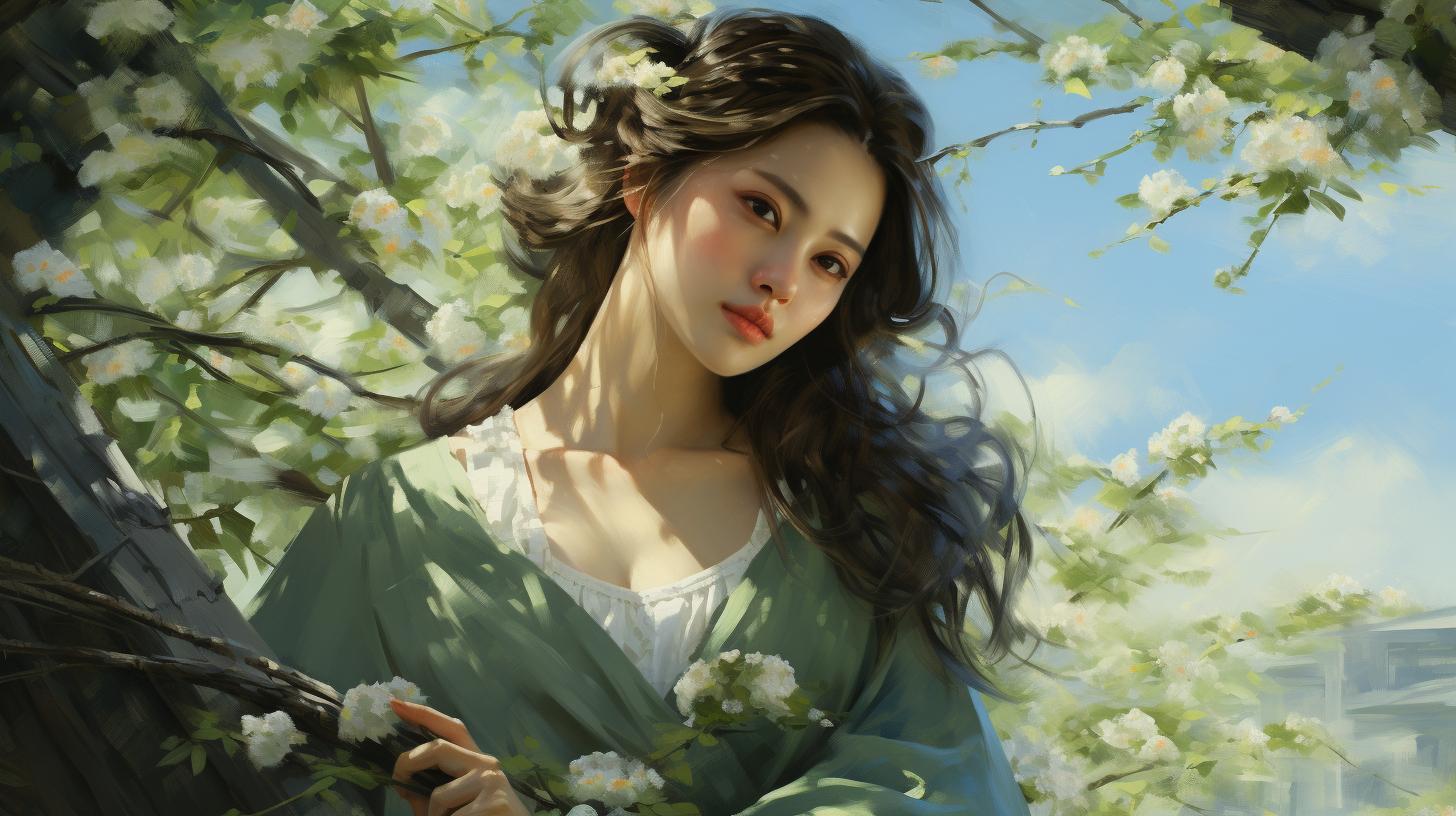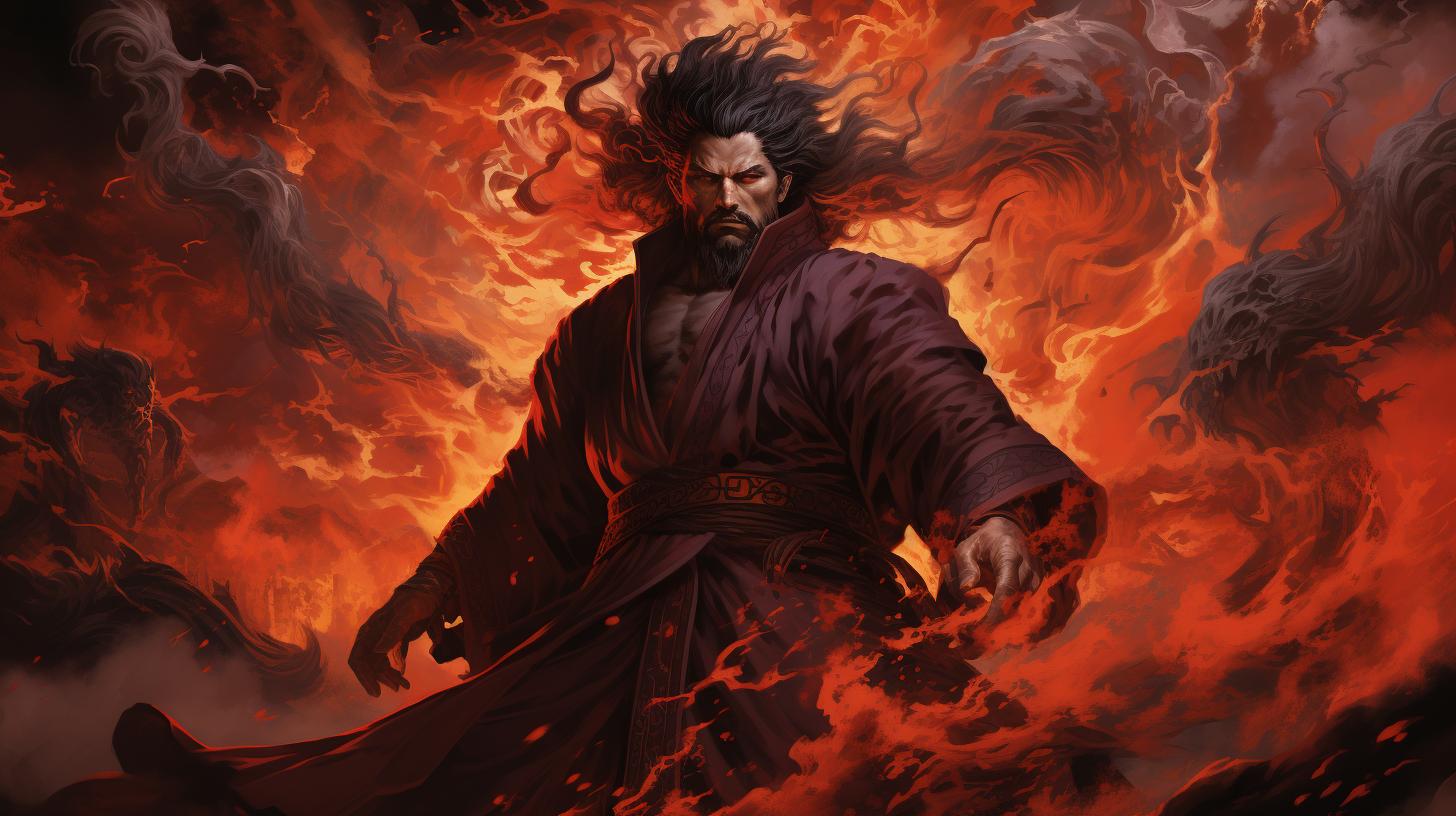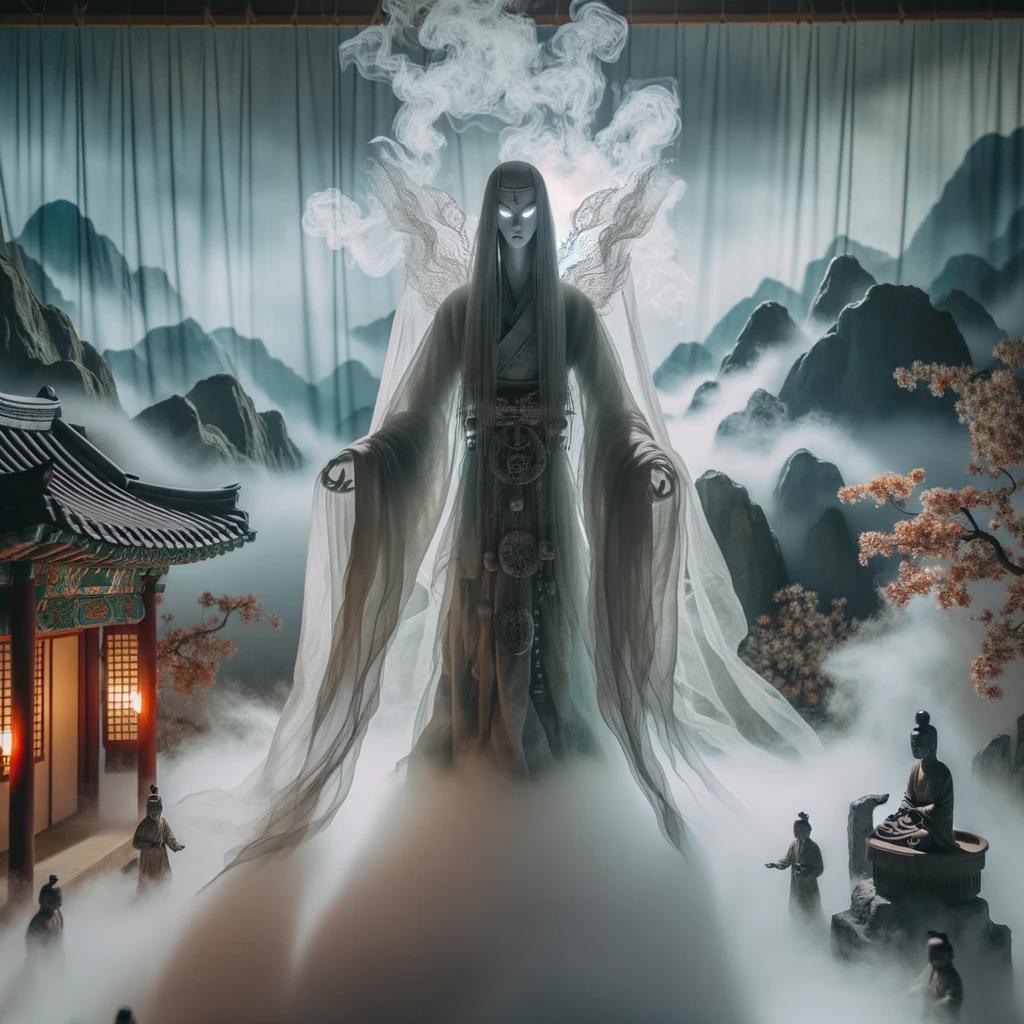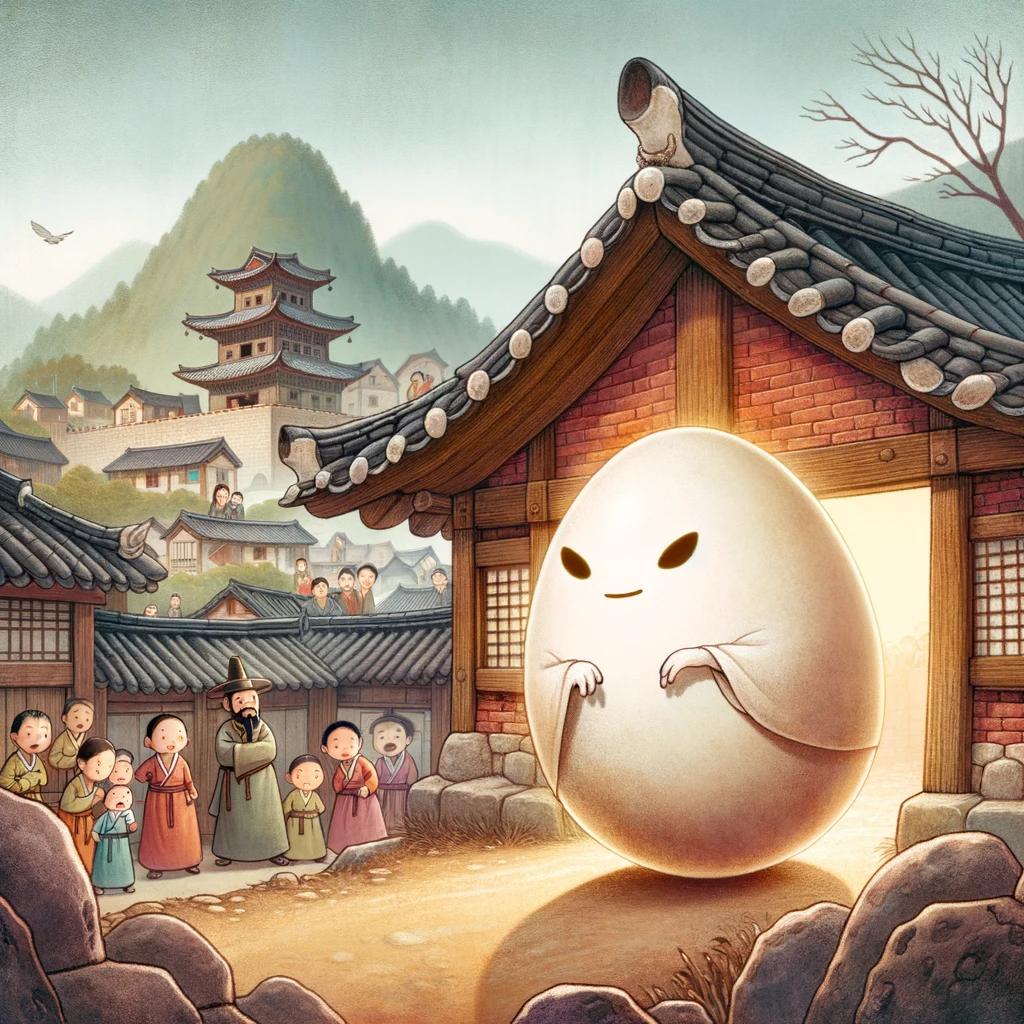Yuhwa Goddess: Exploring the Mystical Legend of Korea’s Willow Deity
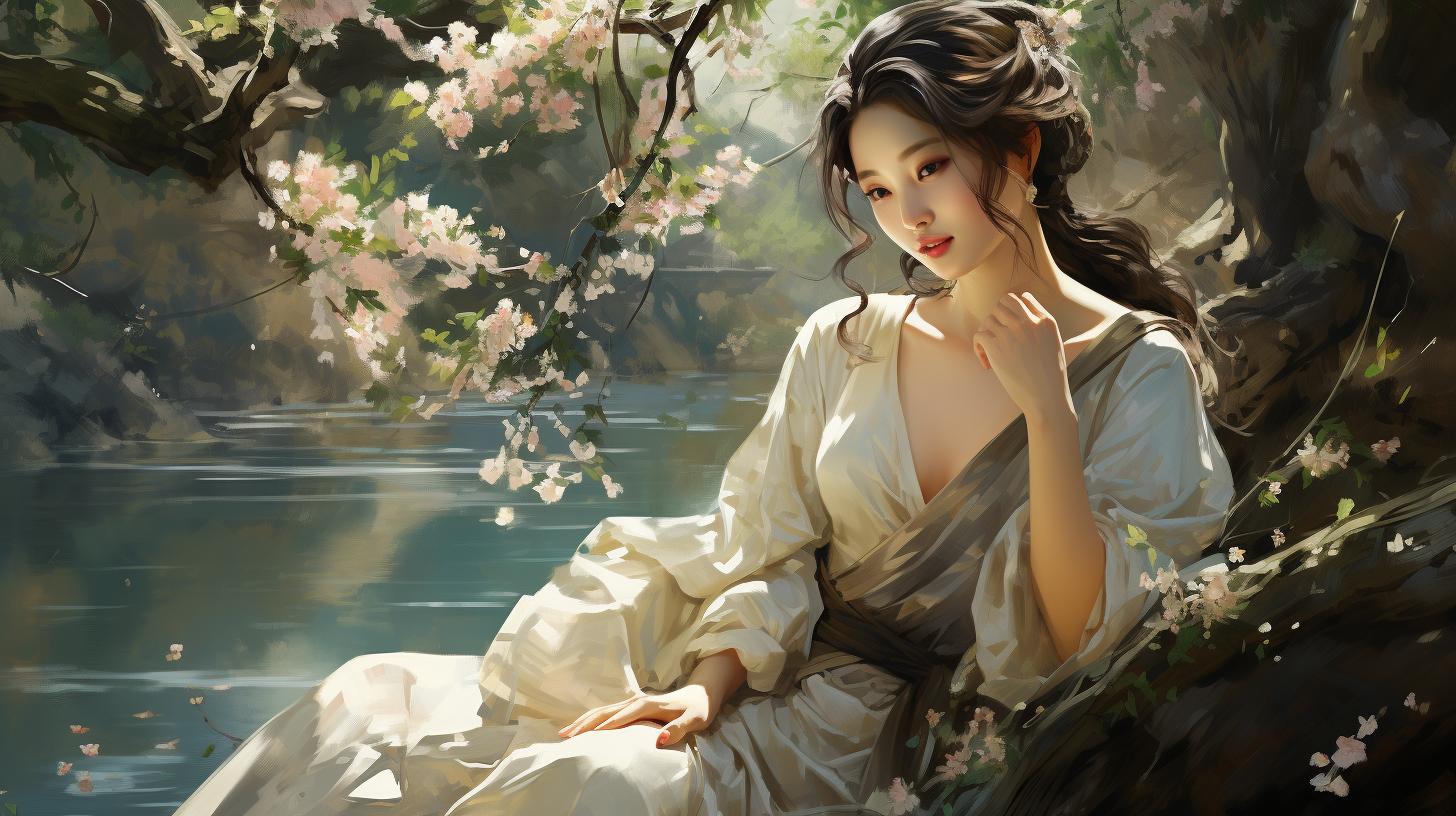
Yuhwa goddess, a mythical figure from Korean folklore, holds a significant place in Korean mythology. Legend has it that Yuhwa, the goddess of willow trees, played a crucial role in the foundation of Goguryeo, one of the Three Kingdoms of Korea.
This article delves into Yuhwa’s transformation, her connection to flute music, her relationship with the River God Habaek, her contributions as a mother figure, and her cultural significance in Korean art and worship.
Explore the captivating tale of Yuhwa goddess and her enduring legacy.
Yuhwa Goddess: Exploring the Mystical Legend
The Legend of Yuhwa and Her Transformation
The legend of Yuhwa goddess holds a prominent place in Korean mythology, captivating storytellers for generations. Yuhwa is known as the enchanting goddess associated with willow trees, possessing a transformative power that has shaped the destiny of Goguryeo, one of the ancient Korean kingdoms.
The tale narrates her journey from a mortal to a divine figure, symbolizing the everlasting bond between nature and the human realm. Yuhwa’s transformation represents the enduring power of resilience and adaptation in the face of challenges.
The Significance of Willow Trees in Korean Mythology
Willow trees, intricately woven into Yuhwa’s legend, hold deep symbolism in Korean mythology. These graceful and resilient trees represent femininity, fertility, and healing. The delicate branches swaying in the wind are seen as a metaphor for resilience and adaptability, lessons that Yuhwa embodies in her story.
Additionally, willows are believed to have a connection with spiritual realms, acting as a portal between different worlds. In Korean mythology, they are often depicted as sacred trees, reflecting the reverence associated with Yuhwa and her divine presence.
Yuhwa in Three Kingdoms History
In the fascinating history of the Three Kingdoms period in Korea, Yuhwa played a significant role. She was not only a pivotal figure in Goguryeo’s foundation but also had a profound influence on Jumong, who would become the first king of Goguryeo.
Yuhwa’s Role in Goguryeo’s Foundation
During a time of great turmoil and political instability, Yuhwa emerged as a symbol of hope and transformation. As the mother of Jumong, she played a crucial role in the establishment and foundation of Goguryeo.
Her resilience, wisdom, and determination were instrumental in ensuring the kingdom’s prosperity and stability.
Yuhwa’s Influence on Jumong, the First King of Goguryeo
Yuhwa’s impact on Jumong, the first king of Goguryeo, cannot be overstated. As his mother, she instilled in him the values of courage, leadership, and loyalty. It was her unwavering support and guidance that shaped Jumong into the visionary leader and warrior he would ultimately become.
Yuhwa’s influence on Jumong’s character and decision-making helped lay the foundation for Goguryeo’s prominence in the Three Kingdoms era.
Yuhwa: The Willow Goddess and Music
Yuhwa, the mythical goddess of willow trees, is not only a revered figure in Korean mythology but also holds a fascinating connection to flute music. Let’s delve into Yuhwa’s significant role in the realm of music and explore the symbolism and representations associated with her divine presence.
Yuhwa’s Connection to Flute Music
The mesmerizing lore of Yuhwa encompasses her profound connection to flute music, adding to the allure of her legend. The haunting melodies of the flute are closely intertwined with Yuhwa’s story, symbolizing her ethereal presence and influence.
The Symbolism of Flutes in Yuhwa’s Story
The flute, a compelling musical instrument, holds deep symbolic meaning in Yuhwa’s narrative. It represents her divine presence and spiritual guidance, as music emanating from the flute is believed to carry her blessings, calming troubled hearts and bringing harmony to those who listen.
Musical Representations of Yuhwa’s Legend
Renowned composers and musicians have found inspiration in Yuhwa’s mythical tale, immortalizing her through their musical compositions. These enchanting pieces aim to capture the essence of Yuhwa’s transformative journey and her connection to the willow trees, evoking a sense of wonder and reverence.
Through the expressive melodies of the flute, these musical representations invite us to experience the depth and beauty of Yuhwa’s story, transporting us to the mythical realm where her presence reigns.
Explore the mesmerizing world of Yuhwa goddess and the enchanting connection between her divine essence and the captivating melodies of the flute. Immerse yourself in the symbolism and musical interpretations that bring this mystical legend to life.
Habaek: The River God and Yuhwa
The legend of Yuhwa, the goddess of willow trees, intertwines with the mythical figure of Habaek, the River God. This section explores the relationship between Yuhwa and Habaek, shedding light on their connection and the significance of the Amnok River in Korean mythology.
Yuhwa’s Relationship with Habaek
Yuhwa’s Transformation and Connection to Habaek
According to the legend, Yuhwa’s transformation into a willow tree occurred after her meeting with Habaek, the powerful River God. Their encounter took place near the banks of the Amnok River, where Habaek bestowed upon Yuhwa divine powers, binding her fate to the sacred river.
This profound connection between Yuhwa and Habaek represents the interconnectedness of nature and spirituality in Korean mythology. It symbolizes the harmonious relationship between humans, deities, and the natural world.
The Amnok River: A Sacred Place for Yuhwa
The Amnok River, also known as Yalu River, holds a significant place in the Yuhwa legend.
It serves as the backdrop for Yuhwa’s transformation and her subsequent role as the guardian goddess of willow trees. The river’s serene waters and lush surroundings act as a reminder of Yuhwa’s divine presence and her connection to the natural world.
Furthermore, the Amnok River is regarded as a sacred site in Korean mythology, believed to be the gateway between the mortal realm and the spiritual realm. It is often associated with rituals, prayers, and offerings to honor Yuhwa and seek her blessings.
Overall, the relationship between Yuhwa and Habaek highlights the intricate nature of Korean mythology and its reverence for the spiritual forces that shape the natural world. The Amnok River serves as a symbol of their connection and continues to be a sacred place where Yuhwa’s legacy lives on.
Yuhwa: The Founder and Mother
Yuhwa’s Contributions and Legacy
The story of Yuhwa, the goddess of willow trees in Korean mythology, encompasses not only her divine powers but also her significant contributions as a founder and mother figure. Yuhwa played a vital role in the establishment of Goguryeo, one of the Three Kingdoms of Korea.
Her leadership and guidance in the early stages of Goguryeo’s formation left a lasting legacy, contributing to the kingdom’s prosperity and growth.
Yuhwa’s influence extended beyond the realm of politics and governance.
Her nurturing and protective nature earned her a revered position as a mother figure in Korean mythology. Yuhwa’s love and care for her child, Jumong, the first king of Goguryeo, symbolize the qualities of a devoted and resilient mother.
Her dedication to her son and her people became an inspiration for generations to come.
Yuhwa as a Mother Figure in Korean Mythology
In Korean mythology, Yuhwa represents the ideal mother figure, embodying compassion, strength, and sacrifice. Her unwavering love and unwavering support for Jumong and her devotion to the welfare of Goguryeo serve as a model of maternal care and responsibility.
Yuhwa’s story resonates with the collective consciousness of the Korean people, reinforcing the values of filial piety and family bonds.
The image of Yuhwa as a mother figure inspires narratives of resilience and determination.
Her unwavering dedication to her child’s well-being, even in the face of adversity, serves as a symbol of maternal fortitude. Yuhwa’s presence in Korean folklore and mythology continues to reinforce the importance of mothers in society and perpetuate the ideals of selflessness and unconditional love.

